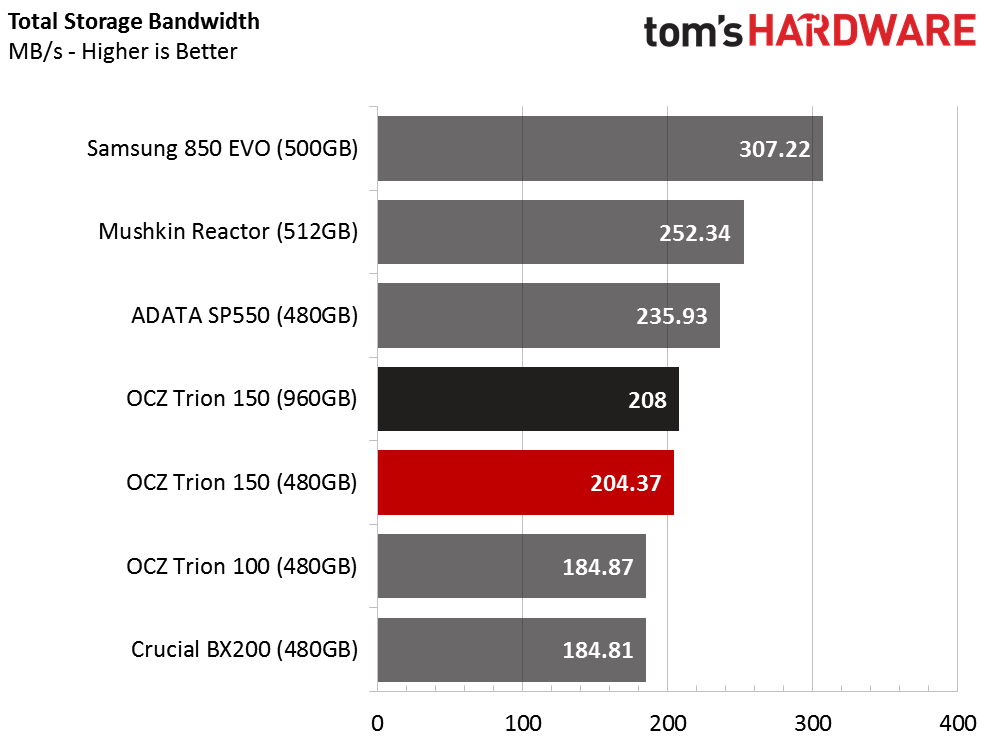OCZ Trion 150 SSD Review
OCZ is on its second-generation TLC-based effort. The new Trion 150 updates the flash to Toshiba's 15nm TLC, but the largest improvement comes from firmware that increases sustained write performance.
Why you can trust Tom's Hardware
Real-World Software Performance
PCMark 8 Real-World Software Performance
For details on our real-world software performance testing, please click here.
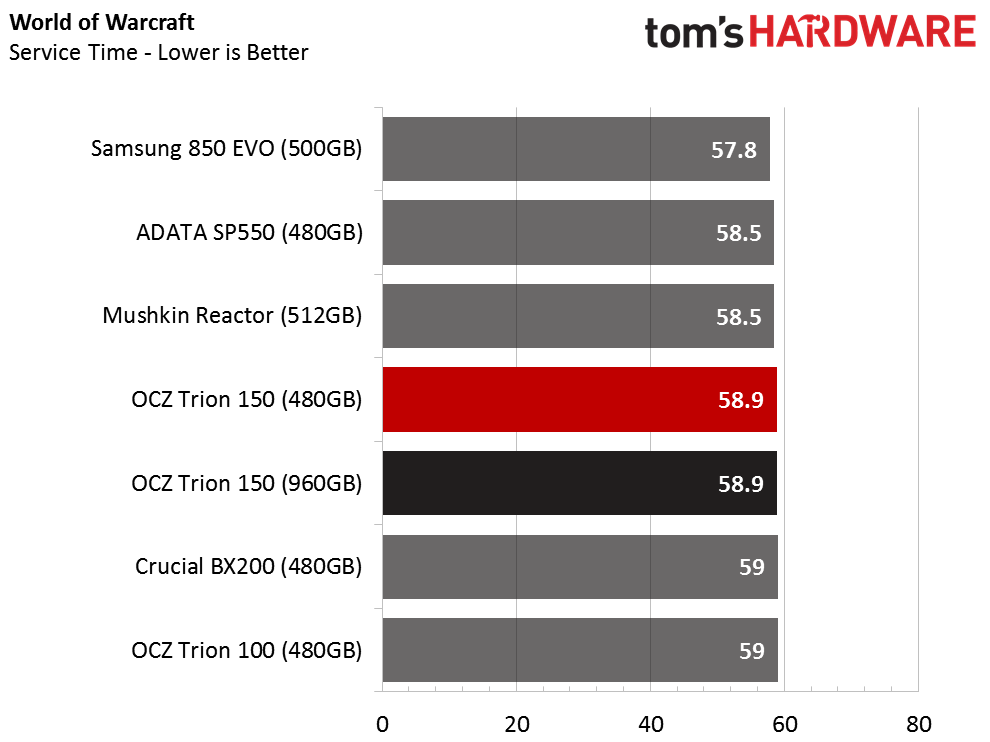
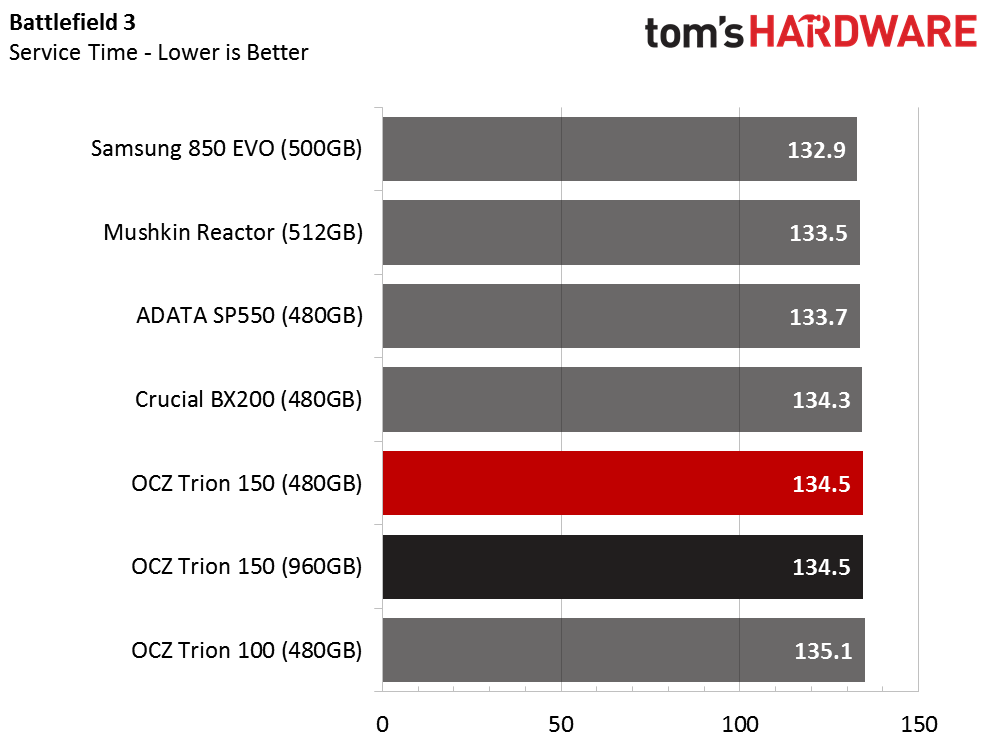
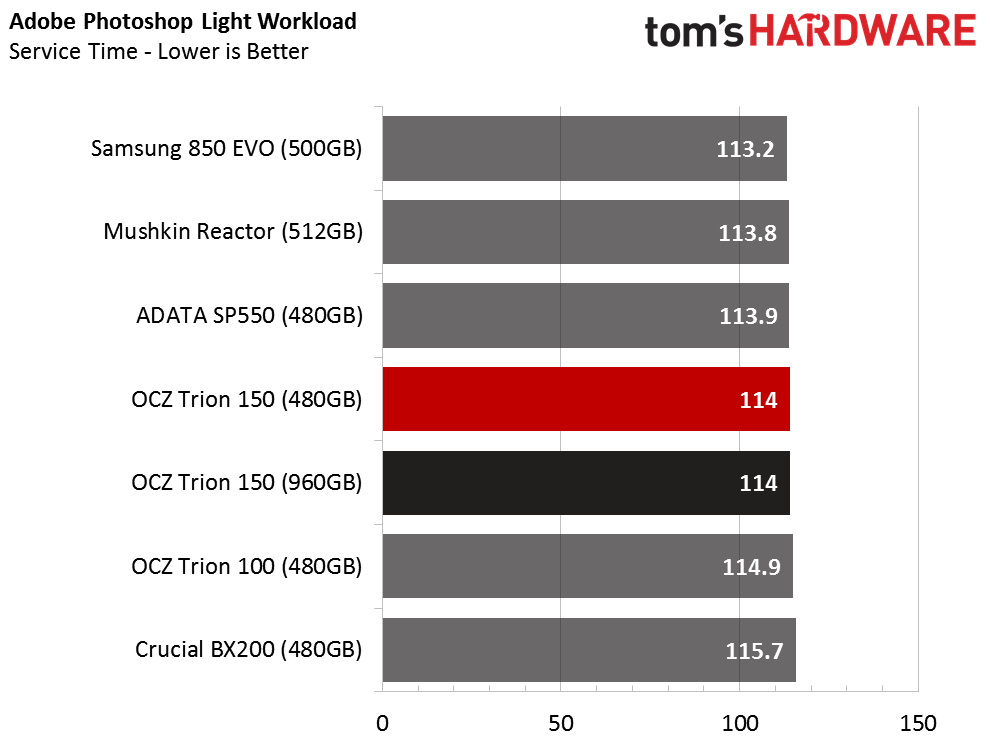
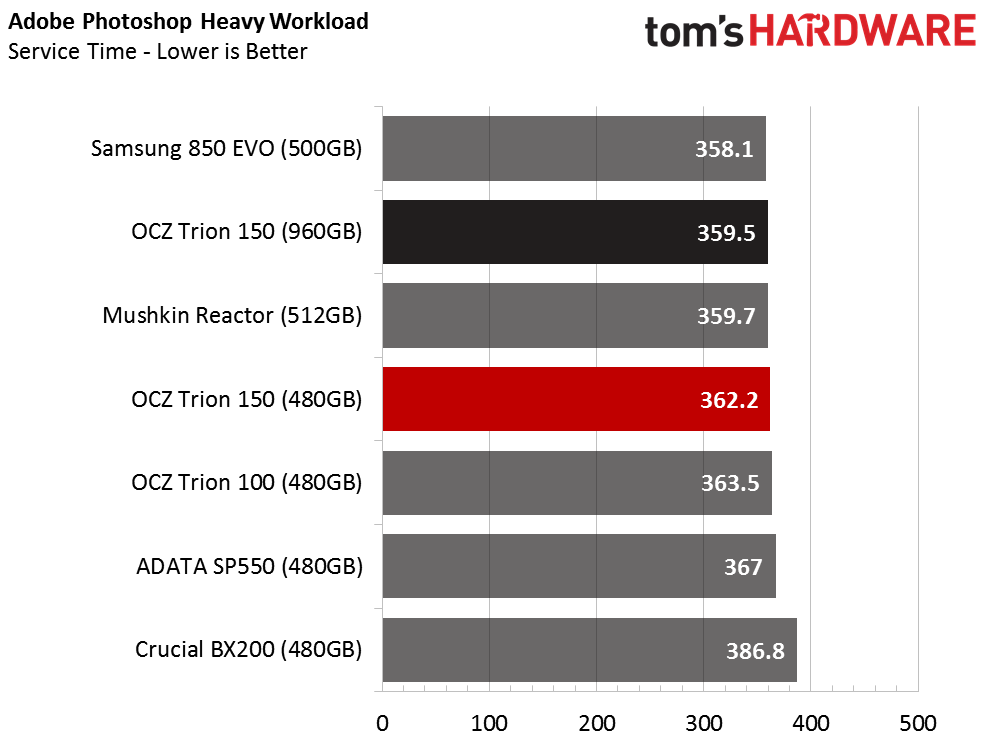
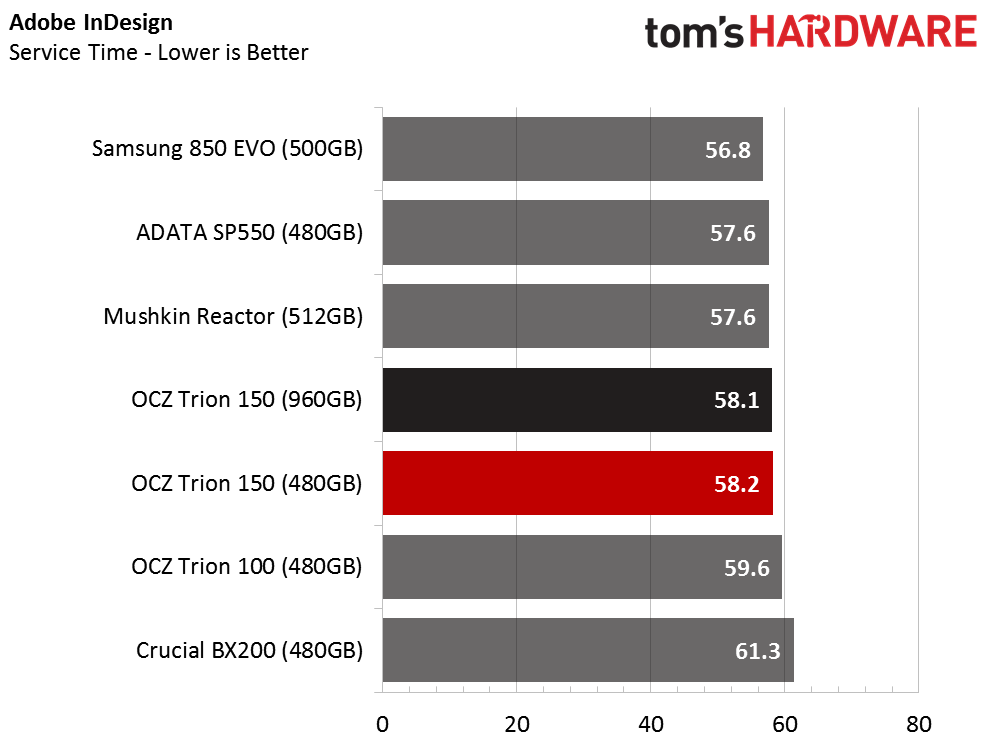
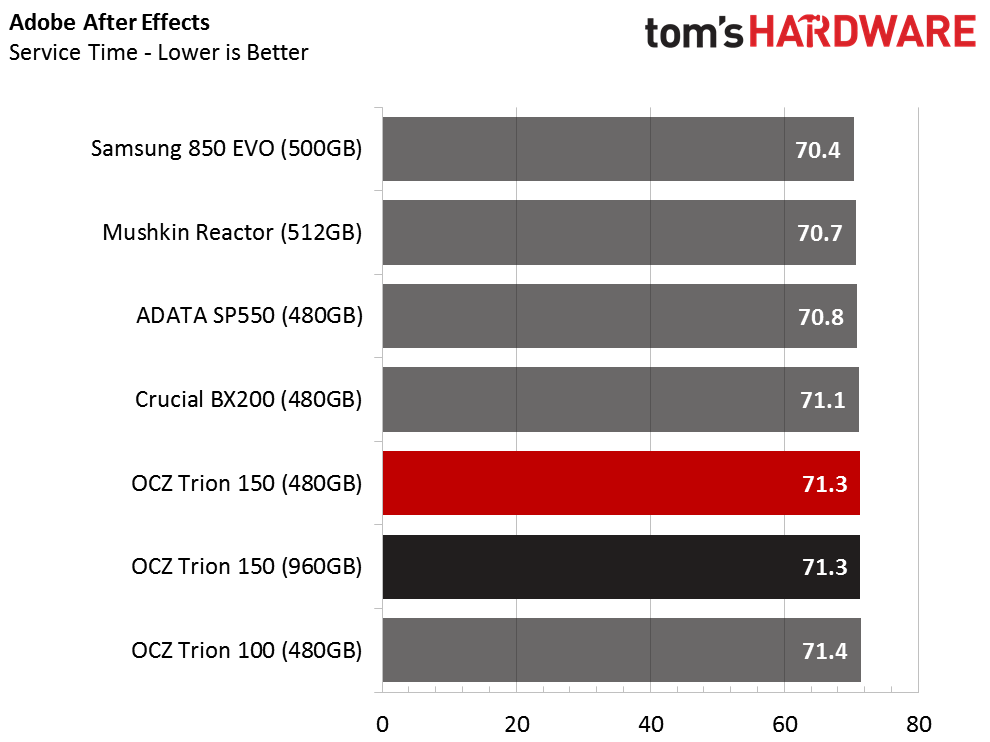
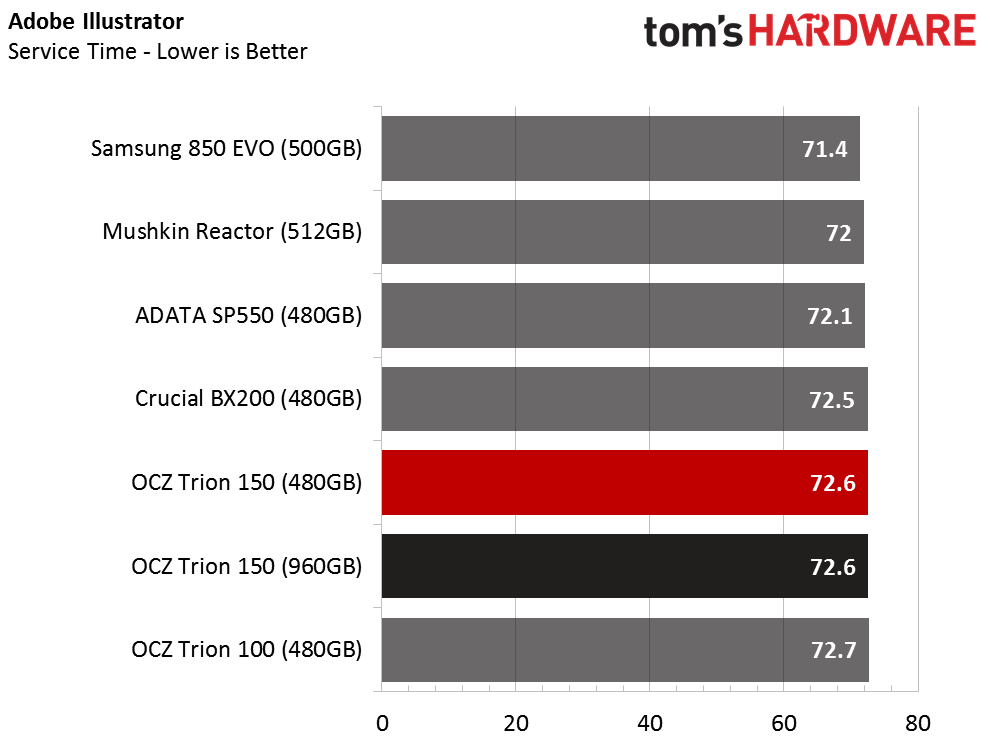
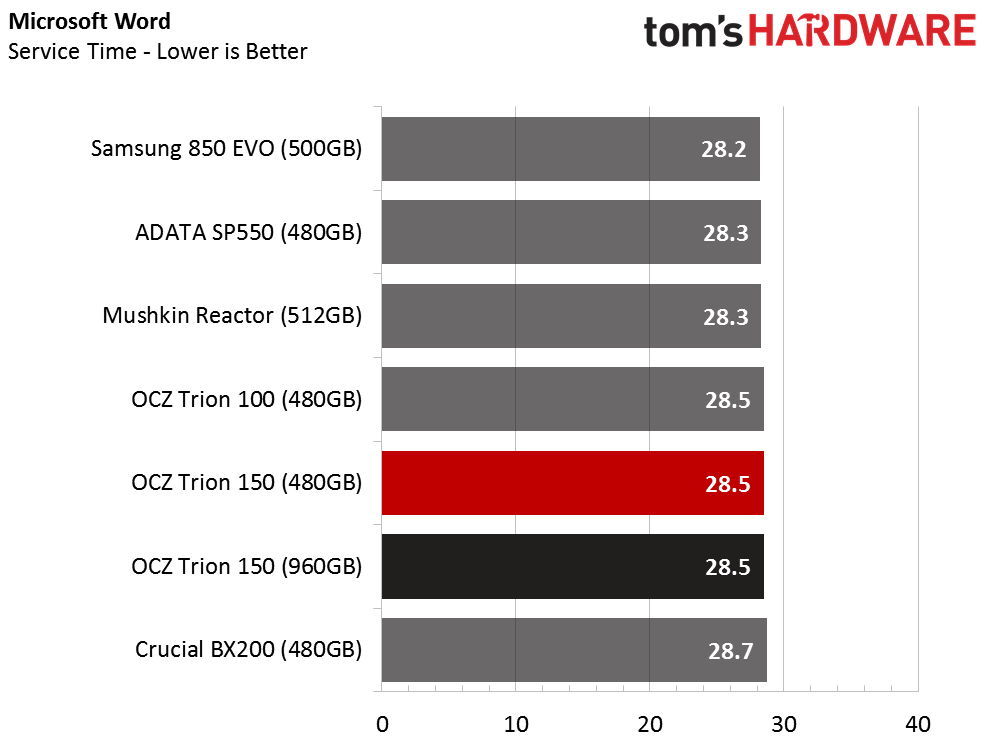
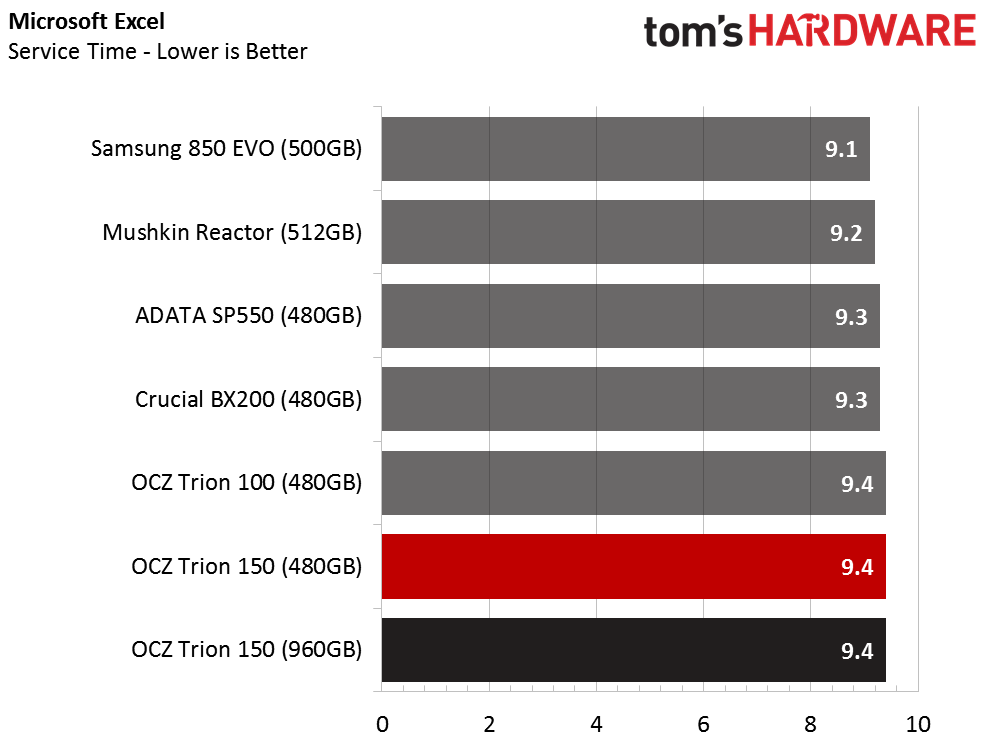
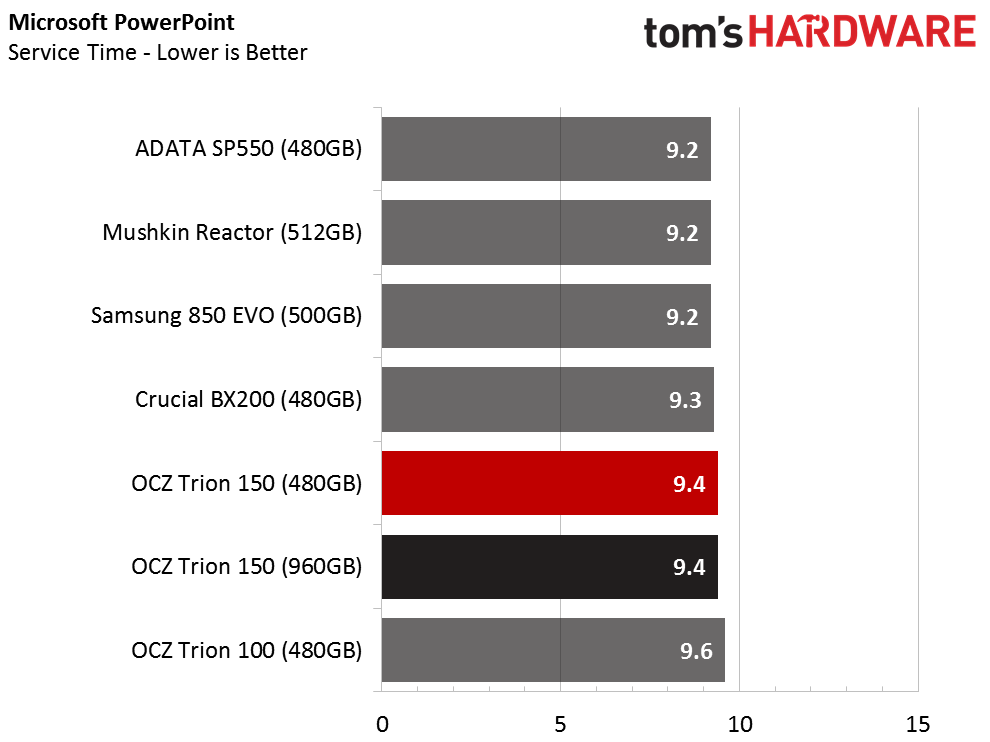
Even with the benefit of direct-to-die writes to help with more intensive workloads, OCZ's Trion 150 can't match the 850 EVO's performance. The 480GB Trion 150 does narrow the gap between the ill-fated Trino 100 and Samsung's segment leader. But that's just not enough to overtake the incumbent.
This chart depicts all of the tests combined; the results are represented in average throughput. The 480GB Trion 150 shows up a full 100 MB/s behind the 850 EVO, and the 960GB model doesn't do much better. OCZ even concedes defeat to Adata's SP550 with a Silicon Motion SM2256 controller and SK hynix TLC flash.
PCMark 8 Advanced Workload Performance
To learn how we test advanced workload performance, please click here.
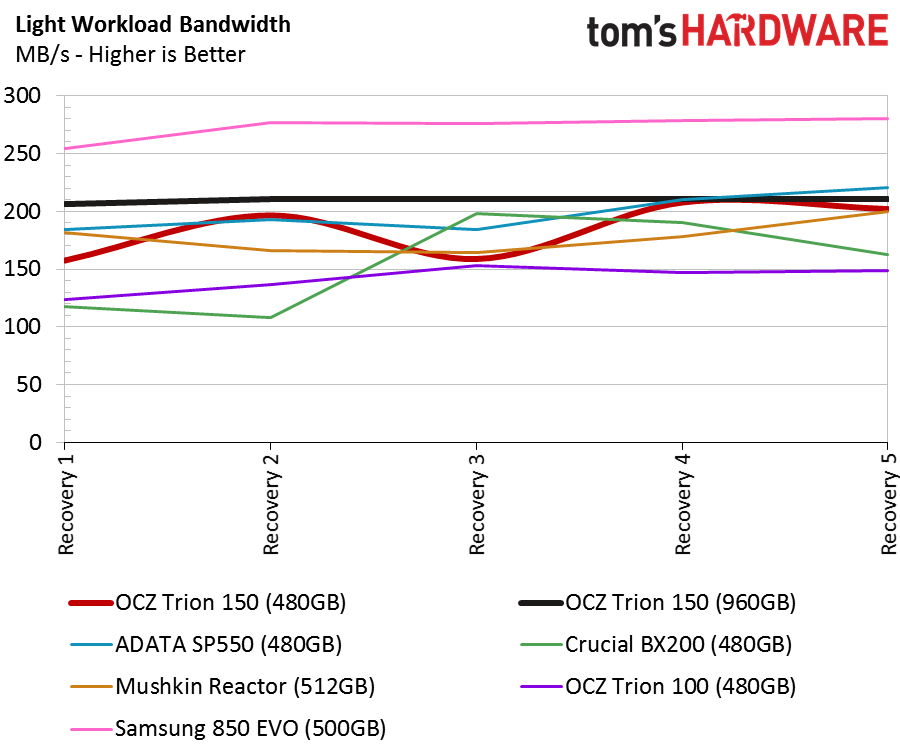
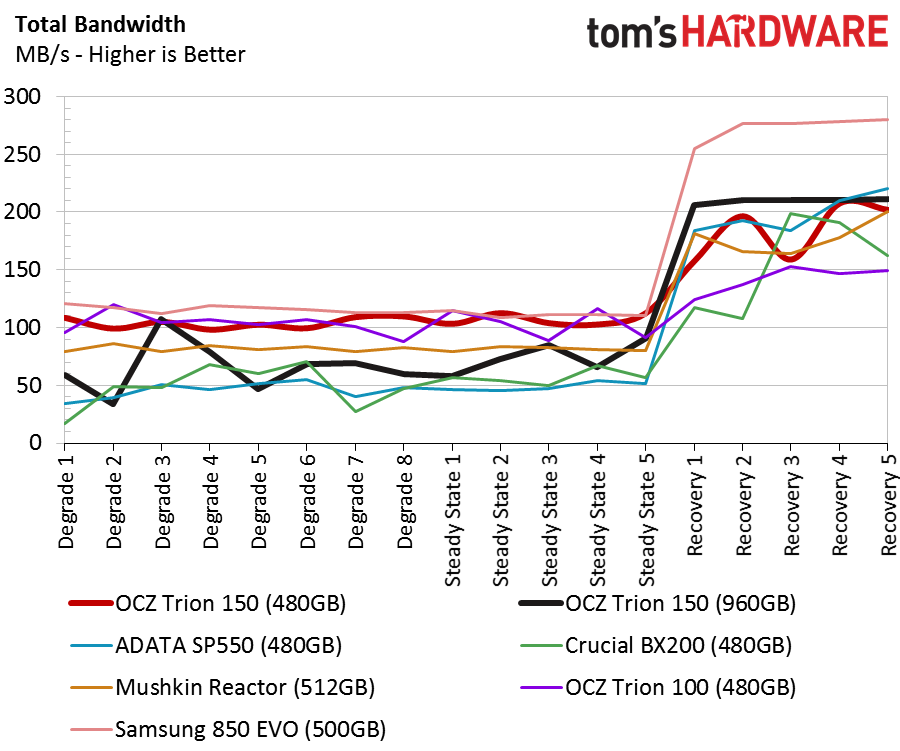
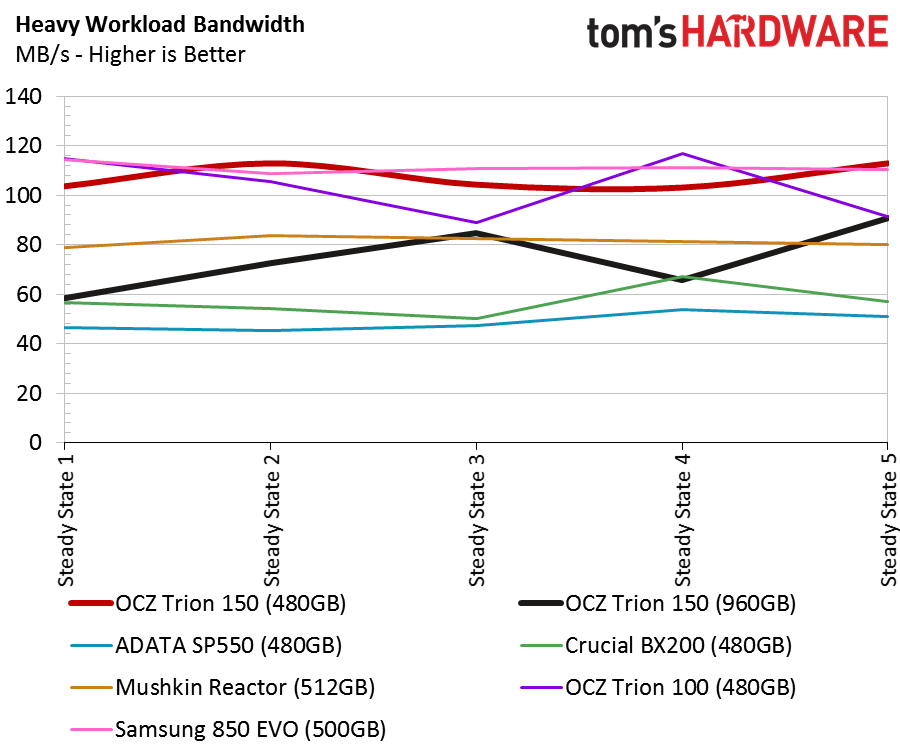
When it comes to evaluating low-cost SSDs, we focus on the recovery stages. Enthusiasts don't purchase TLC-based SSDs for heavy application workloads. The recovery states are indicative of light-use conditions with lots of data on the drives. This is in comparison to the previous tests, which were run with very little information stored on the flash.
Compared to most drives, the Trion 150 fares well. But there is a clear winner here, and that drive sells for a disruptively low price.
Total Access Time
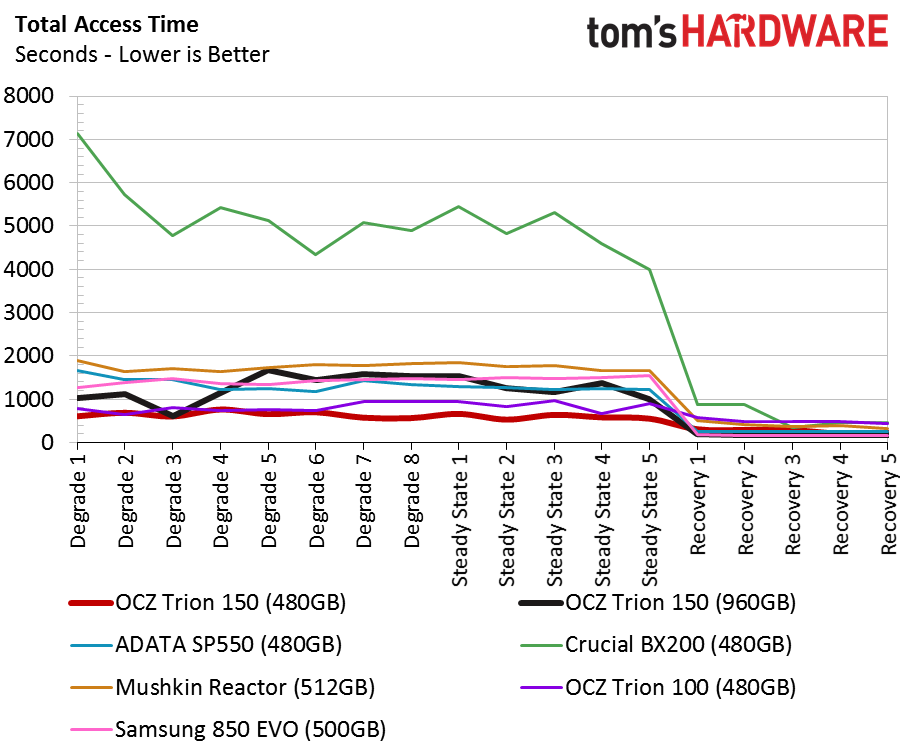
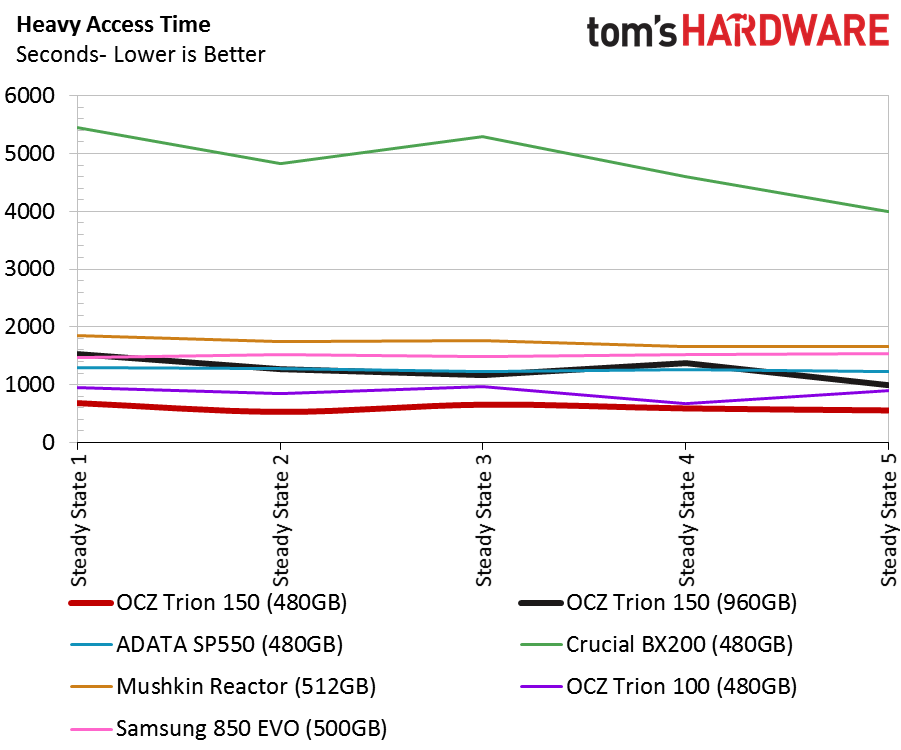
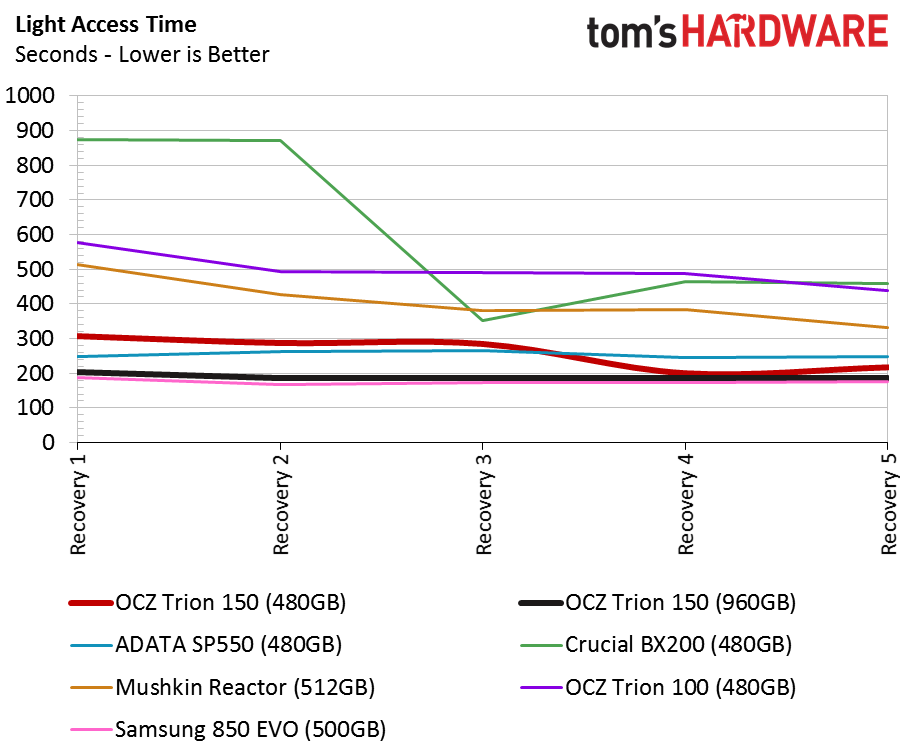
The Trion 150s do a good job of maintaining low latency when they can keep their emulated SLC buffers fresh and ready to accept new data. The 960GB Trion 150 comes close to Samsung's 500GB 850 EVO, but the 480GB Trion 150 takes much longer to complete its combined application tasks.
Get Tom's Hardware's best news and in-depth reviews, straight to your inbox.
Notebook Battery Life
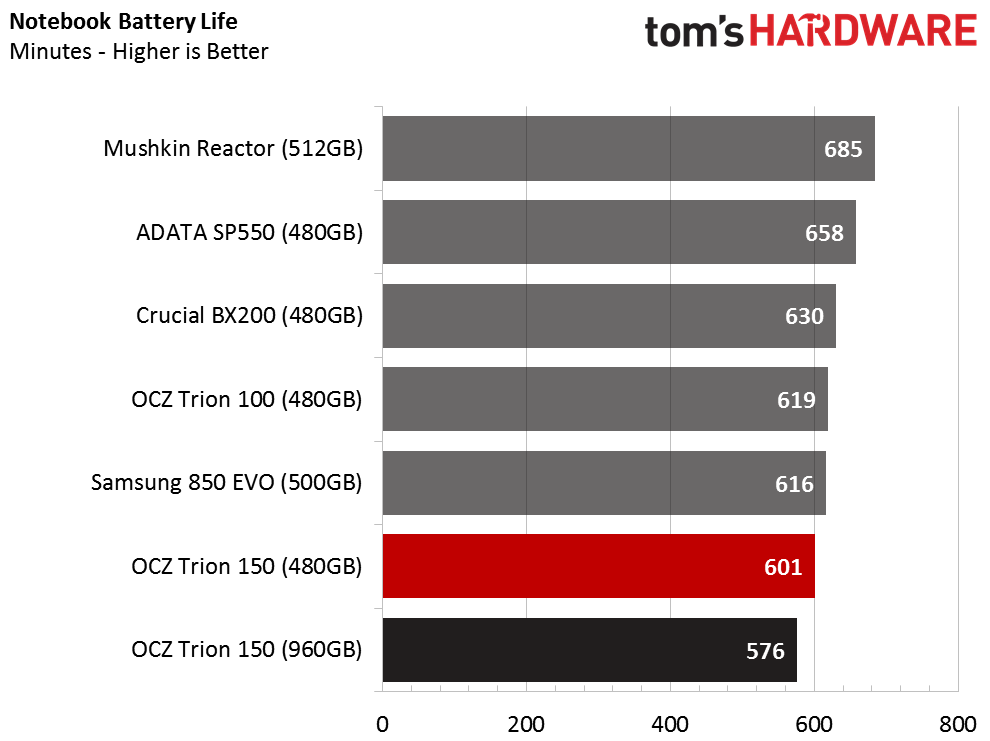
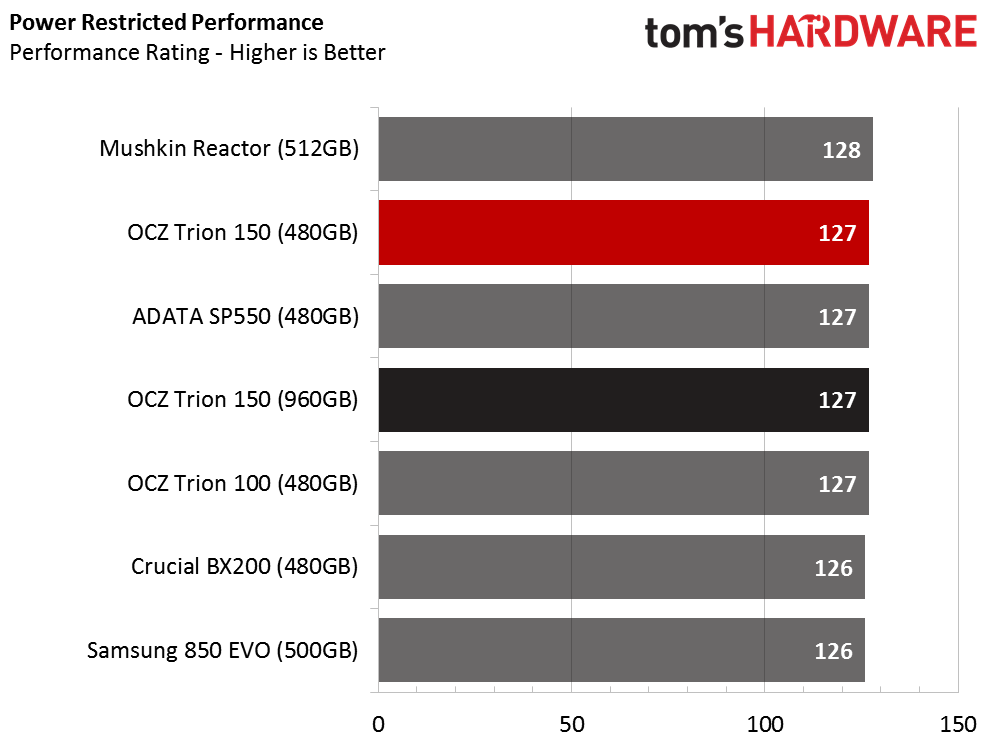
Our notebook battery life numbers caught us by surprise. The Trion 150 doesn't increase run time compared to the original Trion 100. In fact, it goes the other direction. We measured an 18-minute difference between the successive generations at 480GB. Most folks won't notice the difference, but there it is, clear as day.
Current page: Real-World Software Performance
Prev Page Mixed Workload And Steady State Next Page Conclusion
Chris Ramseyer was a senior contributing editor for Tom's Hardware. He tested and reviewed consumer storage.
-
hdmark is anyone else still kind of blown away that SSD's are getting this cheap? maybe im just in a nostalgic mood but I remember when SSD's cost a TON more than this and now were seeing 960gb for almost a quarter a gbReply -
zhunt99 Replyis anyone else still kind of blown away that SSD's are getting this cheap? maybe im just in a nostalgic mood but I remember when SSD's cost a TON more than this and now were seeing 960gb for almost a quarter a gb
I'm right there with you. I picked up a 480 gb Sandisk Ultra II over black friday for $110. I was pretty happy with that.
-
ssdpro The value has gotten quite good. I also beliew SSDs are at a good value point right now. Sure, they can go lower and closer to HDDs in cost/GB, but you also don't want HDD performance, power consumption, or weight.Reply
OCZ products on the other hand are complicated. Seeing early review returns from actual customers isn't going so well. Some SKUs are showing early failures just like the Trion 100. OCZ needs to make a few drives that are so reliable none fail. Supercaps, full pfail circuitry, two controllers, whatever even at a loss if necessary. OCZ's enemy is reputation and reality. -
stevenrix When your OCZ ssd runs out of IOPs or fails, try to reflash it, sometimes it will reset the # of IOPS and put it back to 0 and it will work again....Reply
-
alidan Replyis anyone else still kind of blown away that SSD's are getting this cheap? maybe im just in a nostalgic mood but I remember when SSD's cost a TON more than this and now were seeing 960gb for almost a quarter a gb
cheap to the point that in my next computer i was considering a 512gb drive, but now im looking at 900+gb drives... not so much for their boot as i could get by with a 256 drive for just that, but as a loading heavy game drive too.
granted the next pc i build will get partitioned to hell and back due to the boot options i want, possibly a win 7 partition, a second one that is just os for emergency my main os crapped up, win 10 and the same, then some linux distros for playing around with. should be able to get all that and my required programs to run on less then 300gb, so the rest could be for load heavy games. -
Sakkura Terabyte SSDs are flirting with the $200 barrier. Quite nice, but I'm going to hang onto HDDs for secondary storage for a while longer.Reply -
jrharbort Replyis anyone else still kind of blown away that SSD's are getting this cheap? maybe im just in a nostalgic mood but I remember when SSD's cost a TON more than this and now were seeing 960gb for almost a quarter a gb
At the sacrifice of overall speed and endurance. -
cryoburner ReplyAt the sacrifice of overall speed and endurance.
That implies you actually need that additional speed and endurance though. How many users need a drive that can handle a petabyte of writes? It's unlikely that you'll write much more than a terabyte of data to your system drive each year, so write endurance shouldn't matter much outside of specialized usage scenarios like database servers. I'm not sure if you ever saw that endurance test that Tech Report ran, but they performed continuous writes on various SSDs until failure...
https://techreport.com/review/26523/the-ssd-endurance-experiment-casualties-on-the-way-to-a-petabyte
Their 250GB Samsung 840 Evo with TLC flash survived over 900TB of writes in that test, and they didn't detect any uncorrectable errors until after 200TB. That would be over 100 years of typical desktop usage, making the endurance of the TLC a non-issue.
And as for performance, just look at the "Real-World Software Performance" benchmarks here. All these drives perform very similarly under most usage scenarios to the point where it's unlikely you would notice any notable difference between them in day to day use. Software is still designed with the performance limitations of hard drives in mind, so aside from perhaps large file transfers and some other fringe scenarios, you're not likely to see a huge difference in performance between lower and higher end SSDs.
And ultimately, if the endurance is far higher than what people using the drive will actually need, it makes sense to trade some of that headroom for additional capacity. Cost per gigabyte is the main thing holding SSDs back from universal adoption over hard drives, and multi-level cell flash is helping to bring those prices down to be competitive. -
samopa The elephant on the room is reliability. People tend to buy large storage to hold their valuable data. If performance is what they need, RAID 0 of small disks usually is enough.Reply
OCZ is not well-known for their reliability, and most people do not want to store their valuable data on unreliable media. In past few years, I only used Samsung and Intel brands for SSD, yes they cost higher than competing brand like OCZ, but (at least) to me, the value of my data are even higher than that.
So, are they improved their reliability ? I do not want to to loose my dear data overnight because like some people here, I only backup my personal data once a week. -
Sakkura Reply17699394 said:The elephant on the room is reliability. People tend to buy large storage to hold their valuable data. If performance is what they need, RAID 0 of small disks usually is enough.
OCZ is not well-known for their reliability, and most people do not want to store their valuable data on unreliable media. In past few years, I only used Samsung and Intel brands for SSD, yes they cost higher than competing brand like OCZ, but (at least) to me, the value of my data are even higher than that.
So, are they improved their reliability ? I do not want to to loose my dear data overnight because like some people here, I only backup my personal data once a week.
OCZ had major reliability problems in the early Sandforce days, that's for sure. They were actually improving later on as firmware problems were ironed out and so on. They probably just jumped on the Sandforce bandwagon a bit too quickly. Anyway, improvements or not they went bankrupt. Toshiba bought them up, and if they weren't high quality before, they are now.
Meanwhile, Samsung has had its misstep with the 840 and 840 Evo. But their 850 Evo is great. Again it seems like being an early adopter, this time of TLC NAND, caused issues.
Personally I have an OCZ Agility 3 from 2012 (before the bankruptcy), and it's running just fine. Not that it proves much.
